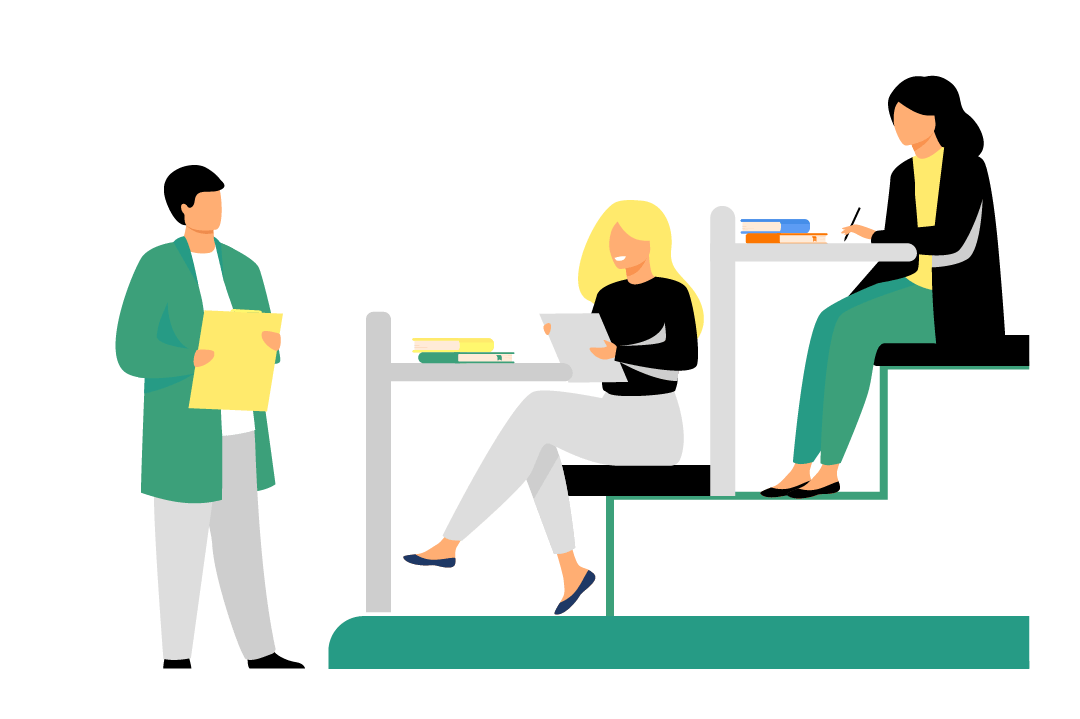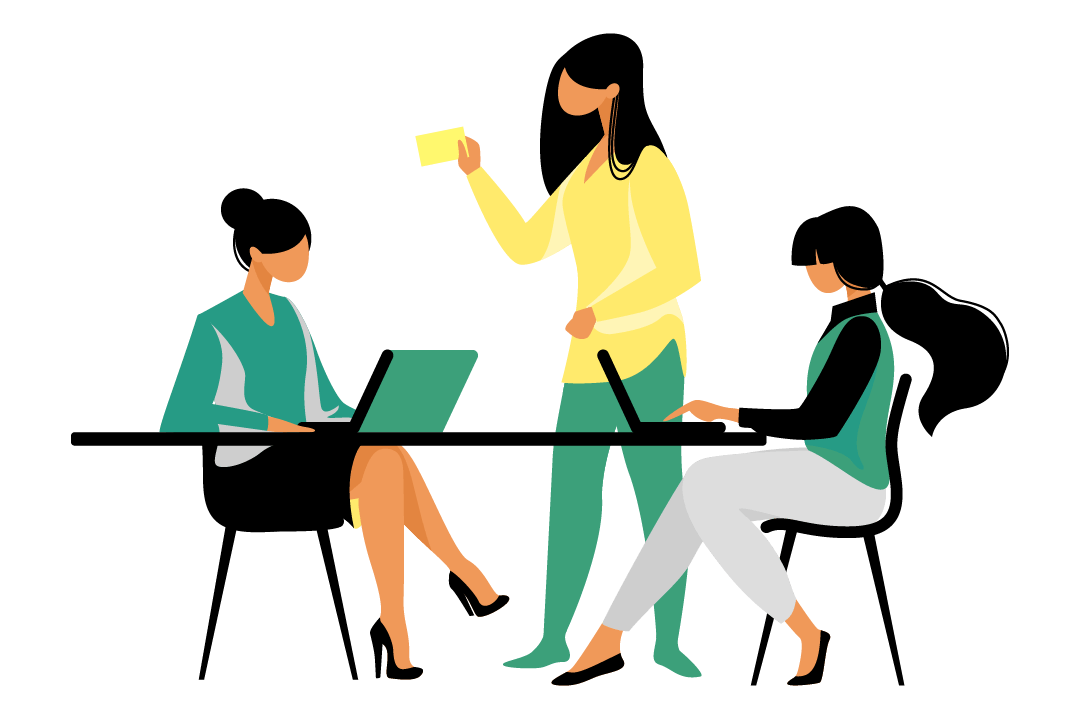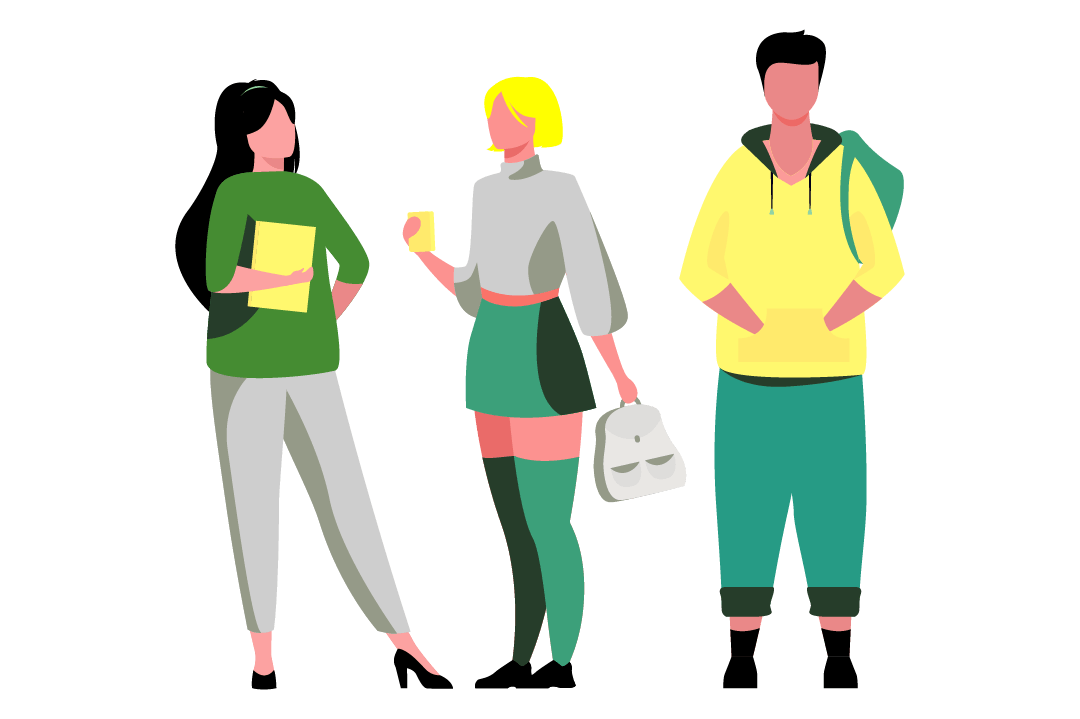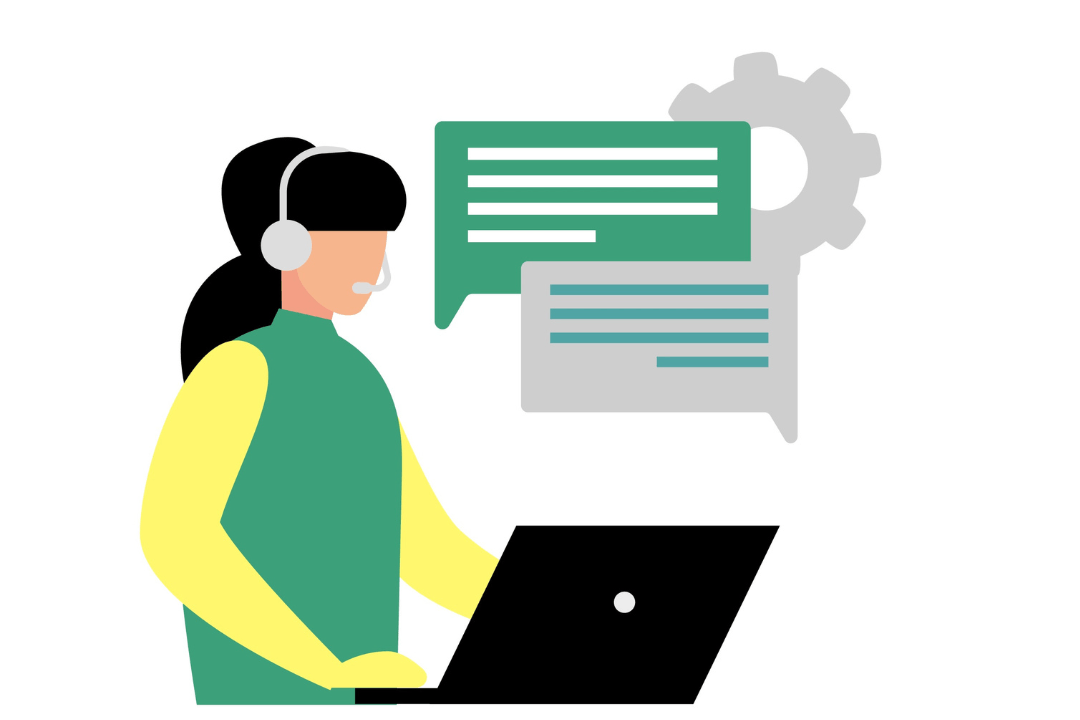INTERNATIONAL RELATIONS
International relations
European High School
Are you passionate about languages and interested in traveling and discovering the world?
Do you want to access top universities and stand out in emerging international professions?
Looking for a high school rich of international experiences?
International Relations is the right path for you.

What characterizes it
It's an international curriculum, reserved for 20 selected students, with subjects taught in Italian and English, that opens you up to the world and prepares you to take a leading role in an increasingly global world.
Educational path
You'll study the history and culture of other countries, as well as human, political, and economic geography, through an active, hands-on approach.
Interdisciplinary projects will help you appreciate cultural differences and experience diversity as a source of enrichment.
You will learn about your rights and duties, the role of institutions, the rules of civil coexistence, and you will prepare to participate actively and democratically in institutional life.
Through workshops and projects on major global issues, you will learn to think innovatively and transform your ideas into projects that create value for society.
You'll improve your English and two other foreign languages. You'll learn them in a stimulating way, thanks to native-speaking teachers, teaching in a foreign language, and an international environment. You will earn advanced language certifications and, if desired, even a double U.K. diploma.
Study plan
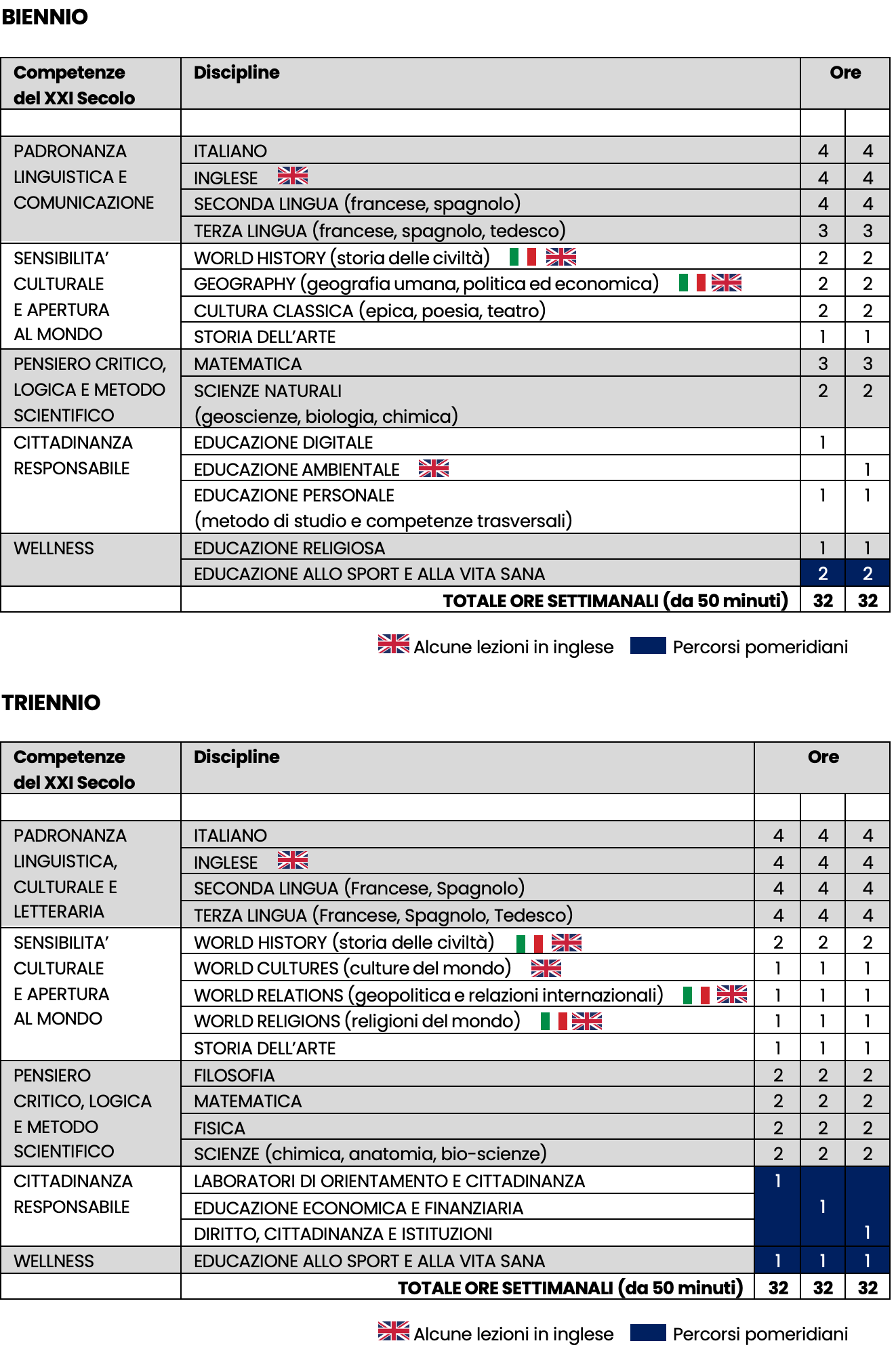
Enhancements
Classical Culture: this is one of the core courses of the two-year program, focusing not on Latin, but on epics, poetry, and drama from the classical world. An extraordinary journey into Greek and Latin culture, the foundations of Western civilization.
Italian: the development of epics and poetry in the classical culture course allows the Italian course to strengthen linguistic skills and introduce students to reading and writing.
English: 4 hours per week, native-speaking teachers, language labs, lessons in English of non-language subjects.
Geography and international relations: including human, political, and economic perspectives, with a focus on world cultures and international relations.
Art History: lessons from the first year onwards, taught in parallel with the history curriculum.
World Cultures: not only the study of languages but also of the cultures of different geographical areas, to discover that diversity is a richness.
World Religions: a journey through the world's major religions to understand the origins of cultural gaps.
Additional courses
Environmental education: a highly topical course on sustainable human development, urbanization and pollution, renewable energy, waste, recycling, and human impact on the environment.
Digital education: fundamentals of computer science, coding, robotics, the internet, artificial intelligence, and Office. You'll learn how to create a video, a multimedia presentation, and a website.
Personal education: study methods, teamwork, communication, self-confidence, and results-oriented approaches.
Civic education: law, citizenship and institutions, forms of state and government, international organizations.
Economic and financial education: basics of economics and personal finance, budgeting, saving and investing, opening a bank account, applying for a loan, understanding paychecks, starting a business.
Wellness: nutrition and healthy living education, sex education, and instruction in non-traditional sports such as yoga, Pilates, dance, meditation, and aerobics.
The IESS Experience
Experiences abroad: four-week study abroad program at an English school. Summer school and work experience.
International projects: Erasmus projects and exchanges with schools in other countries.
Educational trips: field trips, museum visits, shows, and cultural events.
Career guidance: parliamentary simulations, meetings with experts on emerging professions and international careers.
Field experience: internships, projects, and workshops at partner universities, research centers, and innovative companies.
The IESS method
Only three lessons a day: to focus your attention on fewer subjects and have more space to work with the teachers.
Active participation in lessons: lessons are more stimulating, you follow more attentively and you learn more easily, even at home.
Laboratory lessons: in class, put theory into practice in labs and team-work. Understanding is more important than memorization.
Dialogue with teachers: engage in ongoing dialogue with teachers, in a climate of trust and collaboration.
Constant use of new technologies: personal iPads, digital textbooks, Wi-Fi and Internet, in classrooms.
Attention to each student: a tutor closely follows you in your personal and academic growth.
Your growth matters more than grades: you no longer focus solely on grades but on improving every day. In the end, even your grades are better.
After high school
University
You will be able to continue your studies in all university faculties, in particular Languages, Linguistic Mediation, International Relations, but also Economics, Law, Political Science, Psychology, Communication Sciences, Journalism.
Careers
You'll be able to start your own business, access international careers, or enter emerging work environments, both in Italy and abroad.
As a professional, in professional firms in the linguistic, business, and psychological fields; in universities, research offices, and research centers, in the political and social fields; at international organizations, in the political and diplomatic fields.
As a manager, in public administration and business, in the fields of human resources, communications, international relations, tourism, international cooperation, and public relations.
Want to know more?
What makes it unique
The curriculum adopts an international study plan and teaching approach, which includes not only the study of foreign languages, but also of cultures, religions, international relations, and human, political, and economic geography, with the goal of developing well-rounded international profiles.
Small size classes
20 students selected based on academic achievement.
International curriculum
Geography, World History, World Culture, World Relations, World Religions.
Five subjects taught in English
World history, Geography, World culture, World relations, World religions
English empowerment
Subjects taught in English, Cambridge certifications and double UK diploma.
Interdisciplinary projects in language
Workshops and case studies on current international topics.
Active citizenship workshops
Parliamentary simulations and social labs on topics of social interest: civil rights, human rights, health, welfare, society, etc.
Project work in language
Orientation projects on emerging professions and international careers.
Experiences abroad
Study trips to in English schools.
Summer school and work experience.
Erasmus projects and exchanges with schools in other european countries.
